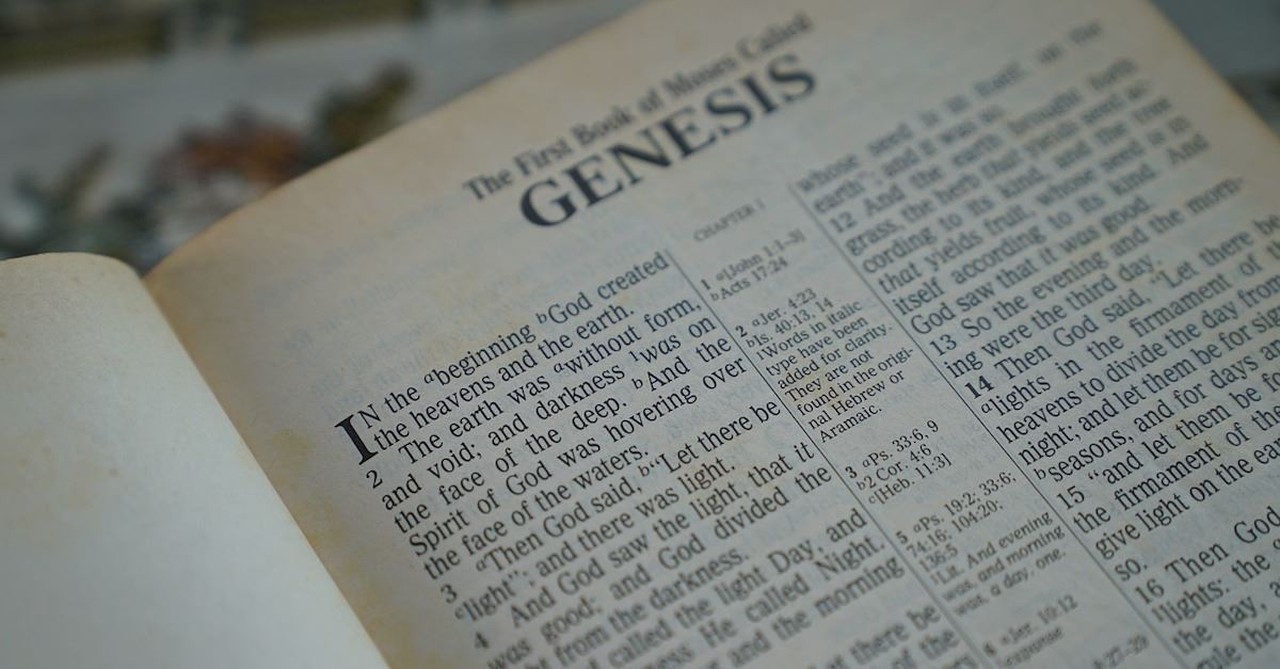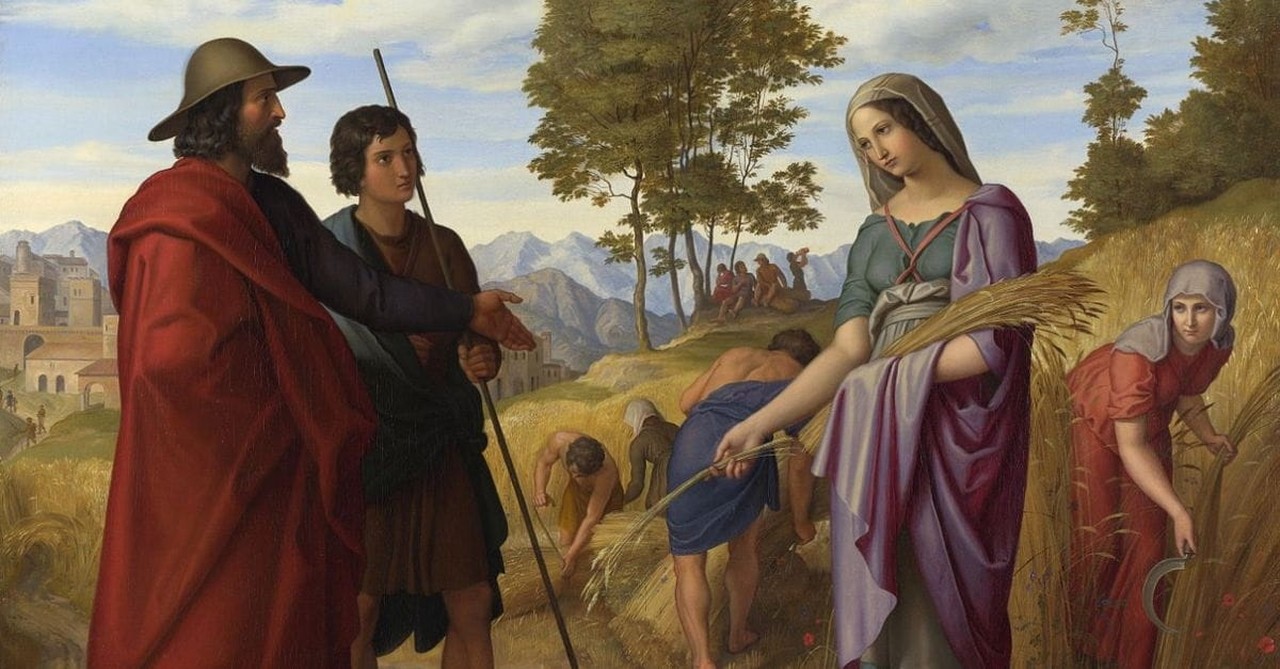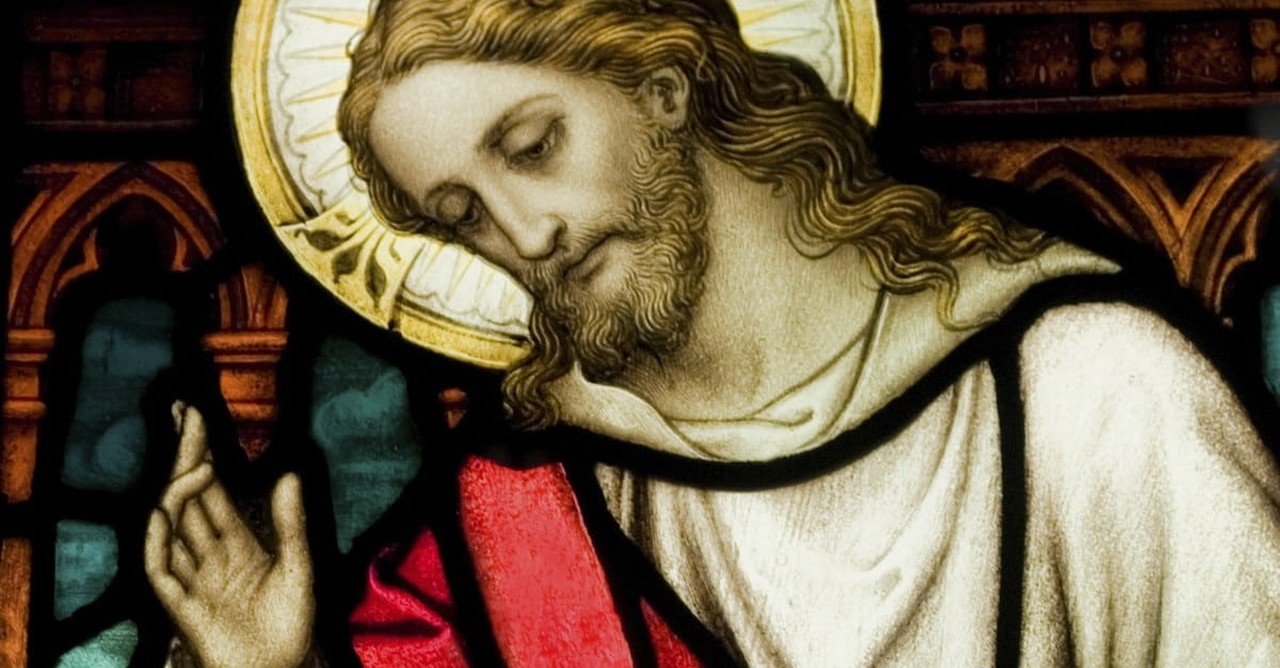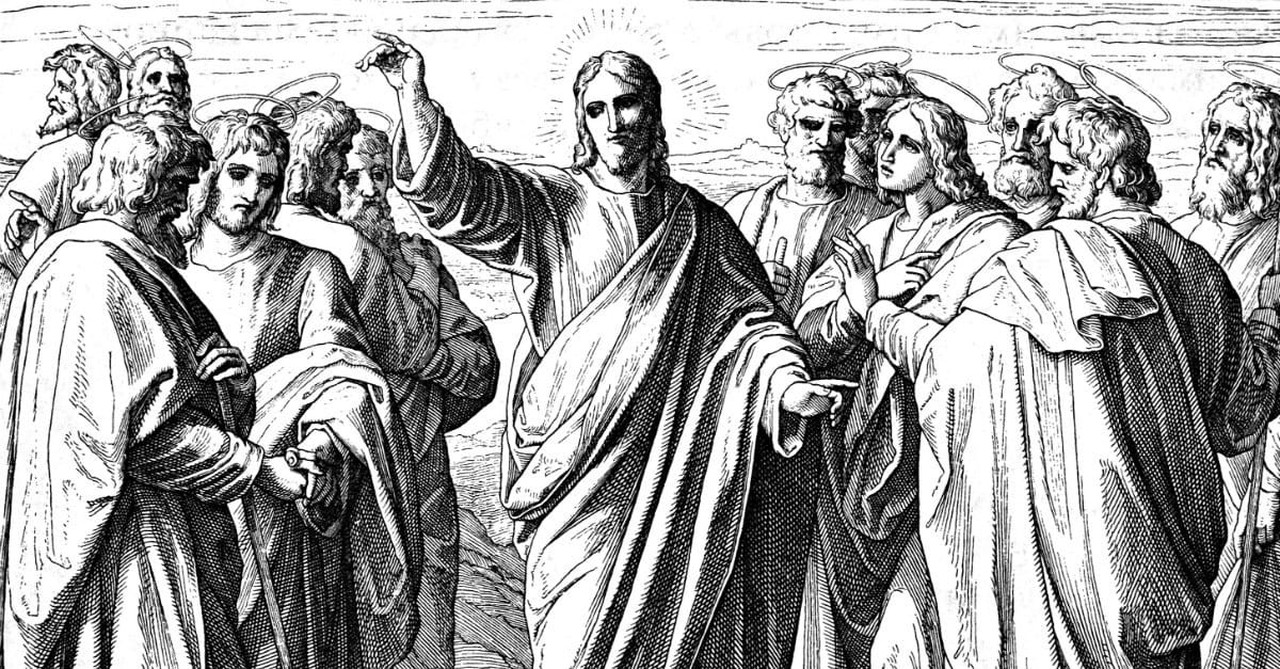
Some Bible events and stories are familiar, while we often overlook other stories that have more power to help our children than people realize. Modern day problems are not that different from those of the past, so the solutions and consequences are still relevant. Some stories reveal pitfalls of materialism, forgetting to read God’s word, and doubts. Others reflect important aspects of biblical history, God’s provisions, sharing faith, and trusting God.
©Unsplash/BenWhite
1. Lot Moves Away

1. Lot Moves Away
SLIDE 1 OF 10
Read Genesis chapter thirteen. It focuses on the parting of Abraham and his nephew Lot, who separated because wealth and possessions got in the way of their relationship. They accumulated too much for the land to support all the animals, material items, and people. Abraham let Lot choose what land he wanted. He decided to go toward the plain of Jordan near cities filled with wicked people.
Read on into chapter fourteen and you’ll discover that Lot moved into Sodom and when war came to the land, enemies carried Lot and his family and possessions away. Abraham came to his rescue and lot returned to Sodom where he later lost everything when God destroyed the city (Genesis 18:16-19:38). This also led to the birth of children who became the nations of Moabites and Ammonites. Their descendants became enemies of Abraham’s descendants. They settled in Jordan and some of their descendants are still there to this day.
It’s easy to get caught up in focusing on money and stuff more than people. God wants us to keep relationships strong, and that may mean giving away items when we own too much.
Photo credit: ©Pixabay/spencerwing
2. Hard-working Ruth

2. Hard-working Ruth
SLIDE 2 OF 10
The book of Ruth contains some great lessons and shares part of the lineage of Jesus. Ruth, a very poor widow, stayed faithful to Naomi, her widowed mother-in-law. They returned to Naomi’s home country of Israel to the town of Bethlehem, where Ruth worked hard for food to feed both of them. She gleaned in fields owned by Boaz; she walked behind the reapers, who gather the wheat, and picked up the leftovers. Boaz noticed Ruth and her faithfulness, as well as her hard work.
Boaz ended up marrying Ruth and they had a son named Obed, the grandfather of King David and ancestor of Jesus. Ruth shows us that we should be willing to work for our food. The story reminds us that we can go through hard times and trust God for our future.
Photo credit: ©Thinkstock
3. The Lost Book

3. The Lost Book
SLIDE 3 OF 10
Some stories are so important that they are worth repeating. We read the same events about Josiah in two books of the Bible: 2 Kings 22 and 2 Chrinicles 34-35. Josiah became king of Judah at age eight. Even as a young boy he wanted to follow God. The Bible tells us he did right in God’s sight—he got rid of idols and pagan images.
At age eighteen, after Josiah had the land and temple cleaned, he asked the high priest to count the money and pay workers. While working on the money, the high priest found the book of the law; the first five books of the Bible, which was the only part they had at the time. Josiah asked the priest to read the book. When he heard God’s Word and the laws, he became very upset and tore his clothes. He understood that God is very holy and that he and the people had not followed the laws. He worked to change the hearts of people, so they would obey God.
Josiah reminds us that God’s word is important and we should always remember to read and follow God’s Word.
Photo credit: ©Unsplash/PhotobySydWachs
4. Honoring a Disabled Man

4. Honoring a Disabled Man
SLIDE 4 OF 10
King David had a dear friend named Jonathan who died. Jonathan was the son of King Saul, who tried to kill David. David discovered Jonathan had a crippled son named Mephibosheth, who could not walk. David sent for him and asked him to live in the palace and eat at his table. King David gave all the land that had belonged to Jonathan to Mephibosheth in order to honor the son of his friend. When Mephibosheth heard David’s invitation and plan, he called himself a dead dog not worth noticing. But that’s not how God or David saw him.
David cared about this disabled person because of his love for the man’s father. He honored him and showered him with kindness. In those times, kings tried to wipe out the families of their enemies; instead, David chose to be kind and merciful.
David’s example should remind us to be kind and loyal to people and not judge them by their appearance or lack of abilities.
Photo credit: @Thinkstock
5. Buzzing for God

5. Buzzing for God
SLIDE 5 OF 10
Read Exodus 23:28 and then look up an unusual way the Israelites had a victory in Joshua 24:11-12. God promised the Israelites that He would send hornets to drive enemies away, and He did. God doesn’t need weapons or huge armies. He can use His own creatures to score a victory. He used hornets to drive enemies and their kings out of the promised land. We don’t read about a battle because God used nature and fulfilled a promise made to the Israelites while they wandered in the desert.
This story reminds children that God is very creative. He controls nature and creatures. We should not limit God when we pray for what seems impossible, because He may surprise us with unusual answers.
Photo credit: ©Thinkstock/IngramPublishing
6. 1,000 Offerings

6. 1,000 Offerings
SLIDE 6 OF 10
The Bible tells us that King Solomon was the wisest man who lived. But he wasn’t born wise; read the amazing story of what happened in 1 Kings 3:3-15 and 2 Chronicles 1:1-12.
When Solomon first became king, he worshipped God and offered one thousand burnt offerings. This meant putting one thousand animals on the altar and slaving over the heat of the fire for hours. God appeared to Solomon that night and said, “Ask what I shall give you.” God wanted Solomon to choose anything he wanted. Solomon didn’t ask for riches, power, or a great army. Instead, he asked for wisdom and knowledge to rule the people—God’s people.
God replied that since Solomon did not ask for a long life, riches, power, the death of enemies, or anything to use for himself, he would indeed give Solomon wisdom and knowledge. As a bonus, God said he would also give Solomon more riches and honor than any other king.
God notices when we worship Him and do good deeds for Him. He wants us to desire what will help other people more than what will make our lives easier.
Photo credit: ©Thinkstock/LoveTheWind
7. Silence Shattered, and then More Silence

7. Silence Shattered, and then More Silence
SLIDE 7 OF 10
The Angel Gabriel shattered the silence. The angel came and spoke to an old priest named Zacharias to share the good news that he and his wife Elizabeth would have a son who would start the change.
Four hundred years separate the Old and New Testaments. The Old Testament ended with a prophecy of a great prophet coming to restore hearts. God sent no more words, warnings, or signs for such a long time. In the New Testament, Luke chapter one is actually the next event and next words from heaven.
John, the child of Zacharias, would prepare people for Christ, the Lord. Zacharias questioned the angel, and as a result the angel made Zacharias mute until John’s birth.
Once John was named, God loosened the tongue of Zacharias and he spoke. He shared a great prophesy about the coming of Jesus (you can read this in Luke chapter one). This event marked the beginning of all that happened in the New Testament. We should trust and not question God when He chooses us to do something, especially when He offers us a new beginning.
Photo credit: ©Thinkstock
8. An Often-Overlooked Healing

8. An Often-Overlooked Healing
SLIDE 8 OF 10
The gospel of John recounts seven signs that revealed the glory of Christ and helped the first disciples believe. Read about the second of these signs in John 4:46-54. In Cana, after the first sign of changing water into wine, a royal official approached Jesus and asked him to heal his dying son. The man walked twenty miles from Capernaum to Cana seeking Jesus, who he called Lord. Jesus had not healed anyone yet. His ministry had just begun.
Jesus did not go with the man. He never visited the sick son. Jesus simply said to the man, “Go your way, your son lives.” As the man headed home, his servants rushed to him with the news that the son had recovered and lived. He asked when his son had become well and realized it was the hour Jesus spoke the words. The man and his whole household believed. The gospel states that was the second sign Jesus performed.
Jesus is more powerful than distance. He wants us to believe and act on our faith as the man did when he obeyed and started for his home.
Photo credit: ©Thinkstock
9. Doubting Disciples

9. Doubting Disciples
SLIDE 9 OF 10
Jesus rose! He came back to life! It sounds incredible. Even close disciples thought it impossible. Read Mark 16: 9-18 and look at how many times Jesus appeared while those who heard did not believe.
Jesus appeared to Mary Magdalene and she reported the news, but they refused to believe. Jesus appeared to two disciples walking in the country, but the disciples did not believe them either. Then Jesus appeared to eleven of them and scolded them for their unbelief.
These are described in more detail in John 20:14-18 and Luke 24:13-35. In Matthew 28:17, even as disciples saw Jesus and worshipped him, some of them doubted. Jesus calmed their doubts when he told them in Luke 24:39 to look and touch him as he reminded them that a spirit does not have flesh and bones. He ate a piece of fish to show more proof.
The resurrection is amazing and miraculous. It’s no wonder that people today still doubt. We must open our hearts and believe in what is impossible for men to do and know our God is the God of the impossible.
Photo credit: ©Thinkstock/Ruskpp
10. What's on Mars Hill?

10. What's on Mars Hill?
SLIDE 10 OF 10
Paul didn’t turn away and leave. He arrived in Athens, a Greek city filled with idols that showed a lack of faith in the one true God. He met and reasoned with people in synagogues. He did more to reach out to unbelievers. He walked around and pointed out a statue to an unknown God. He talked about this unknown God. He explained judgement and the resurrection. Some people did not believe, some wanted to hear more, and some believed.
He stood in the Areopagus, also called Mars Hill, as he spoke. Named after Ares and Mars, names for the god of war, Paul shared about the Prince of Peace.
Paul, the greatest missionary, never shrunk from proclaiming the truth. He used every opportunity to share his knowledge of Jesus. He continued going everywhere he could travel to spread the good news. God wants us to be brave like Paul and speak about Jesus.
Dig into these and other Bible stories that are less familiar to children. You’ll discover how useful any scripture is to nurture your childrens’ faith.
Karen Whiting (www.karenwhiting.com) writes for both children and adults to help families thrive. Her books for children include discovering more about what’s in the Bible, including The One Year Devotions for Active Boys, The One Year My Princess Devotions, 52 Weekly Devotions for Busy Families, and Girl Talk Guy Talk. You can find Karen on Facebook, Twitter, and Pinterest.
Photo credit: ©Thinkstock
Originally published November 15, 2018.







